- Home
- Molly Harper
My Bluegrass Baby Page 4
My Bluegrass Baby Read online
Page 4
A second chance. They were giving me another chance to prove myself! I could put together another campaign, one just as good as the Derby plan. I restrained myself from hopping up and kissing Ray’s leathery cheeks, but it was a near thing. The normally smirking Mr. Vaughn barely reacted. I expected him to complain about the loss of status, the uncertainty of getting a job he thought he already had. He merely shrugged. “Sounds fair.”
My eyes narrowed at him. There was no way he was okay with this. He’d moved all the way from Atlanta to accept this job. During the weekend wallow, I’d googled the hell out of Josh Vaughn. He popped up in the Society pages like an image-obsessed Energizer Bunny. Junior partner with a fancy marketing firm. Address in a tony district of Atlanta. A pretty girlfriend from one of the wealthier families in town. Why would he walk away from that, and then smile when the job he was promised evaporated out from under him?
What the hell was he up to?
I did not trust him, even less so when he politely asked me to explain the concept of every campaign I’d worked on in recent memory to help him “acclimate.” For the next two hours, we slogged through each and every promotion and every resulting news story—all of which were broadcast against the wall as a PowerPoint presentation of my implied ineptitude.
My chief crime, in his opinion, was my fascination for the, quote, “weird stuff,” which made Kelsey cover her snickers with fake coughs. “You devoted two radio spots and a mailing to promoting the Hillbilly Days festival. You devoted an entire page in the Visitors’ Guide to the ghosts of Waverly Hills Sanatorium. And you put together a pamphlet called ‘Bizarre in the Bluegrass: Strange Roadside Attractions Across Kentucky.’ ”
“The Hillbilly Days festival raises thousands of dollars for charity. Waverly Hills is a haunted site so famous that it’s been featured in about a dozen movies and TV shows. And how could we not create a pamphlet encouraging people to take road trips across the state to see all of the marvelous things they could only see here? Why wouldn’t we show that off?”
He gave me a condescending smile as he opened his laptop and cued up another PowerPoint presentation, which was broadcast on a screen on the opposite wall. “I believe you’re thinking too small, Ms. Hutchins. Driving to the middle of nowhere to see a copy of a monument isn’t exactly a day trip I could sell.” Suddenly all those statistics about workplace violence made so much sense to me.
Through clenched teeth, I responded as politely as I could. “I don’t see the harm in providing information so people can find what they want.”
“The harm is that what they want isn’t necessarily good for the state’s image, which ultimately isn’t necessarily good for the bottom line,” he said, clicking into place another slide, this one showing several newspaper clippings.
“Now, these are a few of the news stories concerning Kentucky that have made national headlines over the past few years.” He nodded to the screen, where the headlines read, LAWRENCEBURG MAN FORCED TO EAT HIS OWN BEARD and MCCLURE COUNTIANS TURN HOUSE INTO A GIANT BONG.
“This is the image we are trying to get away from,” he said. “Kentucky as a punch line.”
“Yeah, if you take a couple of isolated incidents, it’s easy to pick on us. But I think you’ll find that most Kentucky residents don’t really care what the media thinks of—”
“Well, those ‘isolated incidents’ are the ones that make it into the late-night monologues. Perception is reality,” he said.
He did not just interrupt me to spout Marketing 101 claptrap.
“You’re kidding me!” I scoffed. “You don’t know the people here. You don’t know how they think or what they want. And I’m sorry to tell you this, O marketing guru, but the locals really don’t like to be told what they want!”
Vaughn ignored my outburst as if I hadn’t even spoken.
“Kentucky has other resources to offer than moonshine and country ham,” he said, with just enough emphasis to make me think I’d insulted him somehow. You know, outside of my head.
“Oh, please, tell me all about the state where I’ve lived for most of my life,” I retorted.
Vaughn clicked through another slide, showing a beautiful shot of a thoroughbred racehorse straining toward the finish line, mane streaming in the wind. And there was another, of rolling green hills bracketed by a white fence, and a pink-orange sunset on the horizon. A third shot showed a picture of UK’s sprawling campus, with several small close-ups of the medical research facilities. Another showed a large room filled with wooden barrels, where two men sipped on amber liquor. “Kentucky’s polished underbelly. With the exception of the Derby every year, no one seems to remember the state’s traditions of gentility, refinement. We’re going to reintroduce the idea. Kentucky is a place where you can come to rest, refresh, explore some of the wonders of nature without getting too far from a high-end hotel or B and B.”
“That sounds exactly like every marketing campaign used by every state. Ever,” I said, shaking my head. “What’s going to draw people here, specifically? Because other than what I assume was bourbon, you could find those things almost anywhere.”
“Being different isn’t always a good thing. If you were going to spend your hard-earned vacation dollars, would you rather go to someplace ‘safe’ like Florida, or a state where people handle snakes in church and eat their own facial hair?”
“Look, I know we’re a state with problems and the occasional newsworthy weirdo, but I don’t think that we’re worse off than any other place. It’s like having a crazy cousin. You don’t pretend they don’t exist. You place bets on whether they’ll get arrested during Christmas dinner. And, by the way, even the high-profile tourism states have issues. Earthquakes don’t keep people from going to California.”
He snorted derisively. “No, but Deliverance probably cut into the river tourism in Georgia.”
“I happen to think that the people in Kentucky are unique and interesting and we should do everything we can to preserve and promote that character,” I countered.
He rolled his eyes. “Oh, you’re one of those.”
Kelsey very subtly put her hand across my forearm to keep me in my seat as I repeated, “One of those?”
“An armchair sociologist who thinks dysfunction means character.”
“Okay, I think we’re done with the review,” Kelsey said, popping up from her chair like it was spring-loaded. “Josh, let me show you to your office. We’ll get you settled in and maybe we can get you acquainted with some of the unwritten office policies, like not taking the last jelly donut . . . and maybe not baiting already hostile coworkers into beating you senseless.”
Clearly ignoring the warning, Josh leaned across the table with a predatory leer that should have had me cowering back in my chair. “You know, I understand that you’re a bit disappointed by your lack of progress up the ladder here, but I’m not going anywhere.”
“It’s cute that you think that,” I shot back, rising to my feet. “I’m surprised you managed to find your way here in the first place. It’s not like the state advertised the job on Monster.com.”
His face brightened and the sincere pleasure of sharing the next little bombshell with me made his eyes sparkle an even truer blue. “I didn’t have to look. I was recruited. An old fraternity brother heard I was looking for a job—”
“Of course, you were a frat rat,” I muttered, rolling my eyes.
“Pi Kappa Alpha,” he said, pointedly ignoring my derisive snort. “C.J. heard I was looking for a position and gave me Commissioner Bidwell’s card. I sent Bidwell a résumé. The next thing I knew, I had the job. I guess they weren’t completely comfortable with leaving the office in your ‘capable’ hands.”
I made an embarrassing combination of squawk and squeak. The idea that he’d been brought in because he was connected to the right people was somehow mollifying and inf
uriating at the same time. At least I knew for sure that Ray and Commissioner Bidwell hadn’t worked behind my back, promising me the promotion while they’d planned to hand it to Vaughn. He’d been hired because he had a good introduction through the right people. I just had to work harder over the next few months to convince the commissioner he’d been wrong.
It was, however, interesting that he mentioned a C.J. as his frat brother, because I knew a guy named C.J. around Vaughn’s age and he was—aw, sonofabitch.
I wanted to yank on my hair and possibly plop my head against the table hard enough to knock myself unconscious. Instead, I kept that inscrutable mask in place and asked, “Your frat brother, was it C.J. Rowley, by any chance?”
Vaughn’s sandy eyebrows rose. “Yeah, he was in the pledge class ahead of mine. We weren’t really close, but Pikes always help each other out. Do you know him?”
And suddenly, everything made so much more sense. I knew C.J. Rowley much better than I ever wanted to. Rowley was a political leech, a wannabe kingmaker who had attached himself to the administration and wormed his way into the good graces of most of the decision makers through campaign contributions and sponsored parties. He seemed to think he could just skip over the fledgling stages of a political career if he secured some sort of position or appointment for himself. It affirmed my belief in the good judgment of my state government that this hadn’t happened for him so far.
Rowley and I were not friends. Primarily because of his tendency to proposition Kelsey in the vilest manner at every opportunity. Therefore, I’d eliminated him from the guest list of any event we held and if I saw him on any guest list of a department where I had influence, I got him blackballed there, too. And I’d made sure he knew I was doing it. Which probably wasn’t smart.
So. Mr. Perfect Pants Vaughn was C.J. Rowley’s payback.
I finally unclenched enough to stand and give Vaughn my scariest, sweetest serial-killer smile. “I am really looking forward to this.”
Vaughn gave me an amused look, as if I were a cute little Pomeranian puppy attacking his shoes. “You look forward to watching me walk away with your job?”
“I look forward to the work, to putting together the right campaigns, which is why I am going to walk away with the job,” I said.
Kelsey, who had so far remained virtually silent as she absorbed the unfolding drama, shut her notebook with a definitive snap. “We will end you.”
“You are aware that the two assistant marketing directors will be sharing secretarial staff, so I’m technically your boss, too,” Vaughn said, frowning at her.
Kelsey’s face shifted to a more neutral expression. “I look forward to working with you.”
Vaughn snorted and walked out of the conference room, whistling a stupid, jaunty tune. I thunked my head against the conference table, muttering unintelligible threats against Vaughn’s anatomy. And his suit, no matter how well tailored it was.
“He does not like you,” Kelsey observed. “Which is weird, because most people like you.”
“I am trying to steal his job,” I muttered into the table.
“Good point.” Kelsey tried to lift my chin, but I resisted. She wrapped my hair around her fingers and pulled up my head.
I yowled as she forced me to meet her eyes. “Listen to me. You have worked harder than any person I know for the past six years. This is your job. I think we can both agree that I would not do well with a man that hot as my direct supervisor.”
“You’re right,” I agreed, nodding. “Options, hit me with them.”
“We pull a 9 to 5 and swap his Splenda for rat poison,” she suggested.
“Options that won’t land us in jail.”
“We put together a kick-ass campaign because you are one of the smartest, most creative people I know. You know the audience better than Abercrombie McDouche ever could.”
I took a deep breath and smiled up at her. “Thank you, Kels.”
She patted my shoulder. “Besides, if we went to jail, I would sell you for cigarettes.”
In Which I Turn My Workplace into Animal Planet
3
Remember that scene in Bambi when one of the little forest creatures whispers, “Man has entered the forest,” and all of the woodsy denizens flirt with furry nervous breakdowns?
That pretty much summed up the next few weeks at the office.
None of my coworkers knew what to do or what to say to me about my jettisoned promotion. I knew they were furtively discussing it in the break room in hushed, clipped voices, but the moment I walked in, their mouths snapped shut. Other than Bonnie bravely trying to encourage me to decoupage my feelings of rejection away, they kept their heads down, occasionally peeking over their cubicle walls like timid little meerkats.
For my part, I kept a pleasant, tight-lipped smile on my face, acting as if nothing had changed. I brought Melody her baked bribes in the mornings, as usual. I joked around with Charlie about maybe simplifying his reports into one-sheet summaries with lots of pictures. He didn’t laugh, because Kelsey wasn’t there to translate my humor, but that was normal.
Kelsey’s nerd herd hadn’t been able to turn up much in their research, other than learning that Vaughn had worked for Hewitt-Messing, an incredibly impressive large-scale marketing firm in Atlanta, for four years. And his credit rating had improved significantly over the last few months. Frustrated at the lack of useful dirt, Kelsey suggested creating a fake criminal history, listing him as an identity thief with a penchant for destroying policemen’s mailboxes. But I’d like to think that sort of thing was beyond even her evil genius friends. I was probably wrong, but I chose to believe it for my own peace of mind.
I was surprised to find that Vaughn was born in nearby Ohio County. Frankly, it was strange that Ray didn’t mention it. Usually, when you met someone else working for the government, they were introduced with, “This is Seth. His family’s from Farmington,” or, “This is Jennifer; she hails from Beaver Dam.” It helped establish a sort of camaraderie among us all and provided small talk at parties.
And if you were maneuvering through Wildcat Country—where the blue and white UK logo plays prominently on license plates, salt and pepper shakers, wallpaper, and tattoos—you told everybody from your dental hygienist to the guy who sold you your morning coffee that you were a UK alumnus. That’s how deep UK basketball ran to people’s hearts around here. And it was the very reason University of Kentucky alumni and University of Louisville alumni tended to have tense relationships, good-natured or otherwise. I supposed it was inevitable. The schools vied to be the major university in the state. Both competed for the state’s top high school students. Both had prestigious athletic teams that frequently faced off in NCAA championships. The rivalry went back so far, I sometimes imagined the first cavemen who settled in ancient, primordial Kentucky splitting into team groups and painting their rocks blue and red to play . . . whatever passed for sports entertainment in ancient, primordial Kentucky.
But Ray hadn’t mentioned Josh’s alma mater when he introduced us and neither had Vaughn. It was like he was hiding a card up his sleeve. Why wouldn’t he play it?
Hell, I wasn’t a native. I’d been born in Michigan. But when people asked, I told them I was from Wickliffe, Kentucky, even though I’d lived in Ann Arbor until I was ten. I moved to Wickliffe to live with my grandparents after my mom died in a car accident. My father left when I was a baby, and wasn’t exactly available to take over single-parenting.
Gran was a sweet woman who tried to coax me out of my mother’s old room with peanut butter cookies and strawberry shortcake. She was always so happy and upbeat, which made me feel like I was the only one mourning my mom. It took me a while to figure out that she processed her grief through false cheer and baking.
And if Gran confused me, Grandpa was a total mystery. He was a state trooper with a
bristly iron-gray mustache and a gravelly voice that reminded me of actors in old cowboy movies. He was definitely more comfortable watching sports and fishing with my teenage cousins, Guy and Jake, than he was with me. Gran insisted I should have equal time, but Grandpa had no idea what to do with me. In desperation, he started picking stuff out of this big guidebook of Hot Spots and Happenings in Kentucky—printed by the Kentucky Commission on Tourism, thank you very much. As we got to know each other better through a lot of great road trips and bad truck-stop meals, he realized I wasn’t that different from my cousins. I didn’t mind being told wildly inappropriate work stories or him using what Gran called “salty language.” I was just happy to be included.
Where Grandpa had a rough exterior, Gran was a secret finishing school. She’d lived in the elbow of nowhere for most of her life, but she’d hoarded magazines like Vogue and W whenever she could find them. She took great pride in teaching me how to dress, how to build a quality wardrobe on a small budget. She insisted that staying well dressed and coiffed gave you confidence, so even if you felt like the world was caving in on your ears, you had one less thing to worry about. If not for her classic sense of style and nose for bargains, I wouldn’t have survived the well-heeled circles in which I was expected to travel.
Finding security in my grandparents’ Wickliffe home, I burrowed in. And maybe I’d done the same thing at the office. I was so determined to make a place for myself that I’d taken it to an unhealthy extreme. I hadn’t dated anyone seriously in years. I hadn’t dated anyone flippantly in years. I just couldn’t find someone I clicked with. The majority of the men I met seemed to be stuffed shirts or political climbers who didn’t take me seriously at all.
Not that I found their inattention upsetting—it was mutual. Of course, Kelsey had taken to leaving convent brochures in my purse, which I did not find amusing.
“This is a clear abuse of the power of brochures,” I told her as I found yet another pamphlet for St. Anne Convent in Melbourne, Kentucky, in my handbag. “Also, if enough of these things pile up in my purse and I can’t find my wallet, that interferes with paying Angie, which she objects to.”

 Better Homes and Hauntings
Better Homes and Hauntings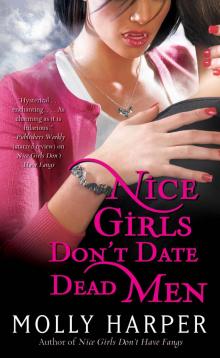 Nice Girls Dont Date Dead Men
Nice Girls Dont Date Dead Men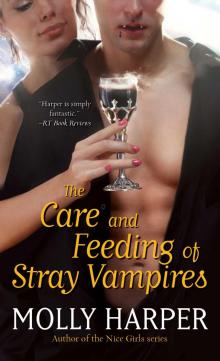 The Care and Feeding of Stray Vampires
The Care and Feeding of Stray Vampires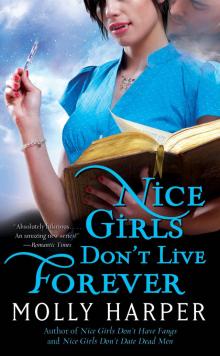 Nice Girls Dont Live Forever
Nice Girls Dont Live Forever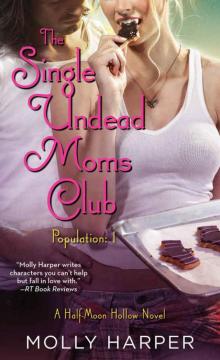 The Single Undead Moms Club
The Single Undead Moms Club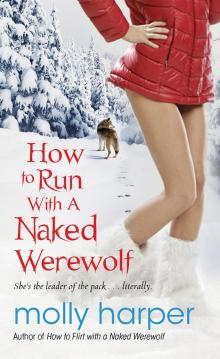 How to Run with a Naked Werewolf
How to Run with a Naked Werewolf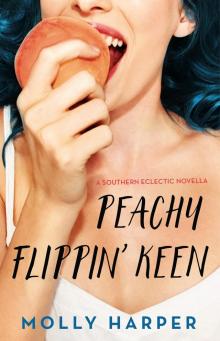 Peachy Flippin' Keen
Peachy Flippin' Keen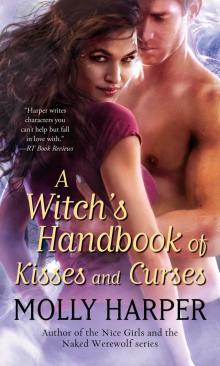 A Witchs Handbook of Kisses and Curses
A Witchs Handbook of Kisses and Curses Ain't She a Peach?
Ain't She a Peach?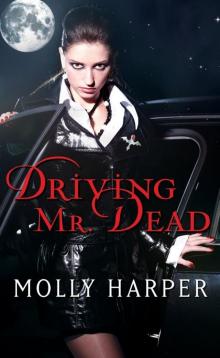 Driving Mr. Dead
Driving Mr. Dead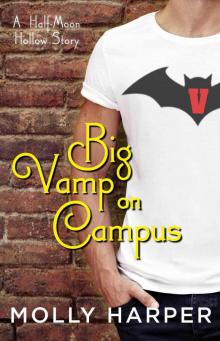 Big Vamp on Campus
Big Vamp on Campus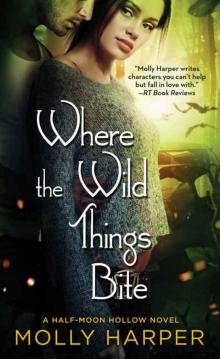 Where the Wild Things Bite
Where the Wild Things Bite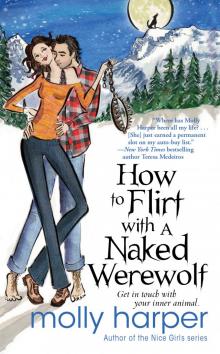 How to Flirt with a Naked Werewolf
How to Flirt with a Naked Werewolf Nice Girls Don’t Sign a Lease Without a Wedding Ring
Nice Girls Don’t Sign a Lease Without a Wedding Ring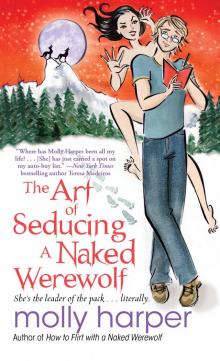 The Art of Seducing a Naked Werewolf
The Art of Seducing a Naked Werewolf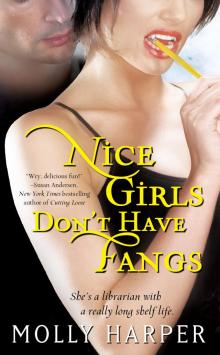 Nice Girls Dont Have Fangs
Nice Girls Dont Have Fangs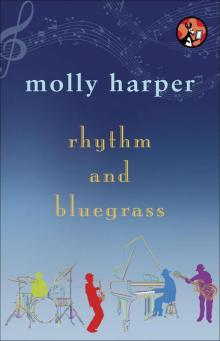 Rhythm and Bluegrass
Rhythm and Bluegrass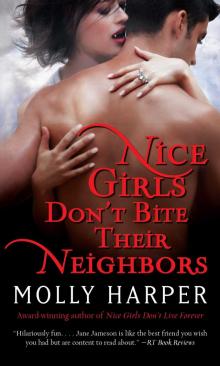 Nice Girls Dont Bite Their Neighbors
Nice Girls Dont Bite Their Neighbors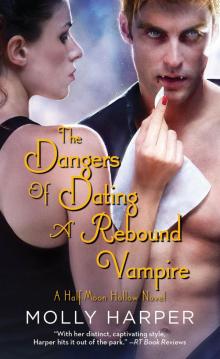 The Dangers of Dating a Rebound Vampire
The Dangers of Dating a Rebound Vampire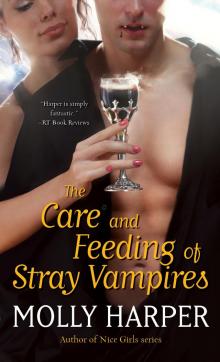 Undead Sublet
Undead Sublet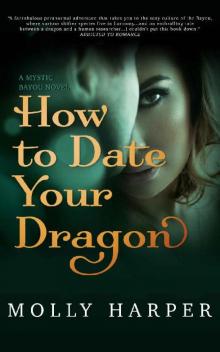 How to Date Your Dragon
How to Date Your Dragon Accidental Sire
Accidental Sire I'm Dreaming of an Undead Christmas
I'm Dreaming of an Undead Christmas Peace, Blood, and Understanding
Peace, Blood, and Understanding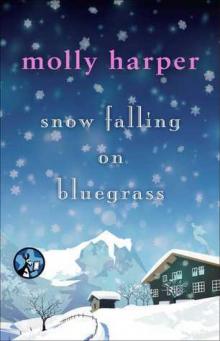 Snow Falling on Bluegrass
Snow Falling on Bluegrass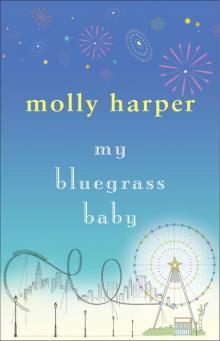 My Bluegrass Baby
My Bluegrass Baby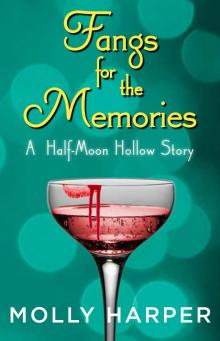 Fangs for the Memories
Fangs for the Memories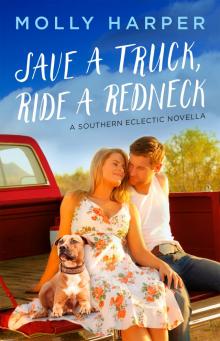 Save a Truck, Ride a Redneck
Save a Truck, Ride a Redneck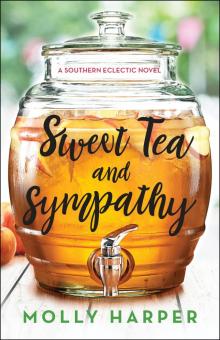 Sweet Tea and Sympathy
Sweet Tea and Sympathy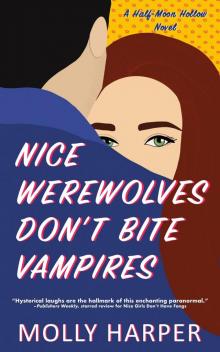 Nice Werewolves Don't Bite Vampires
Nice Werewolves Don't Bite Vampires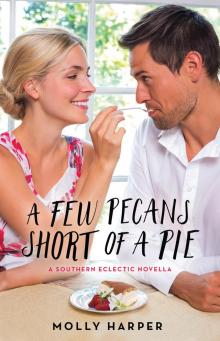 A Few Pecans Short of a Pie
A Few Pecans Short of a Pie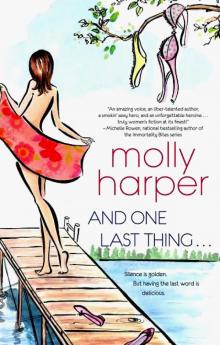 And One Last Thing ...
And One Last Thing ...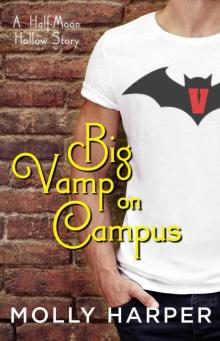 Big Vamp on Campus (Half-Moon Hollow Series Book 7)
Big Vamp on Campus (Half-Moon Hollow Series Book 7) Ain't She a Peach
Ain't She a Peach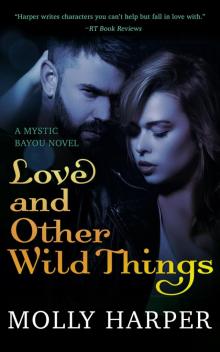 Love and Other Wild Things
Love and Other Wild Things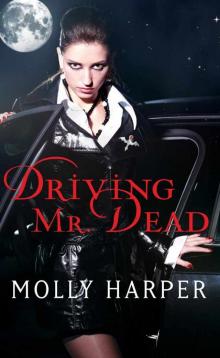 Driving Mr. Dead
Driving Mr. Dead![[Jane Jameson 03.5] Nice Girls Don't Sign A Lease Without A Wedding Ring Read online](http://i1.bookreadfree.com/i1/04/06/jane_jameson_03_5_nice_girls_dont_sign_a_lease_without_a_wedding_ring_preview.jpg) [Jane Jameson 03.5] Nice Girls Don't Sign A Lease Without A Wedding Ring
[Jane Jameson 03.5] Nice Girls Don't Sign A Lease Without A Wedding Ring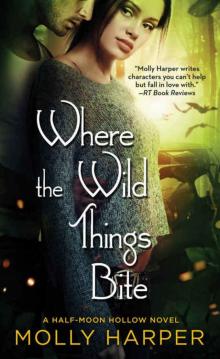 Where the Wild Things Bite (Half-Moon Hollow #8)
Where the Wild Things Bite (Half-Moon Hollow #8)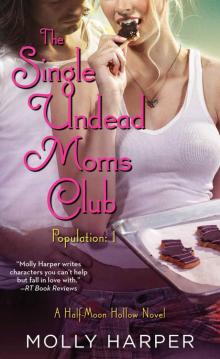 The Single Undead Moms Club (Half Moon Hollow series Book 4)
The Single Undead Moms Club (Half Moon Hollow series Book 4)